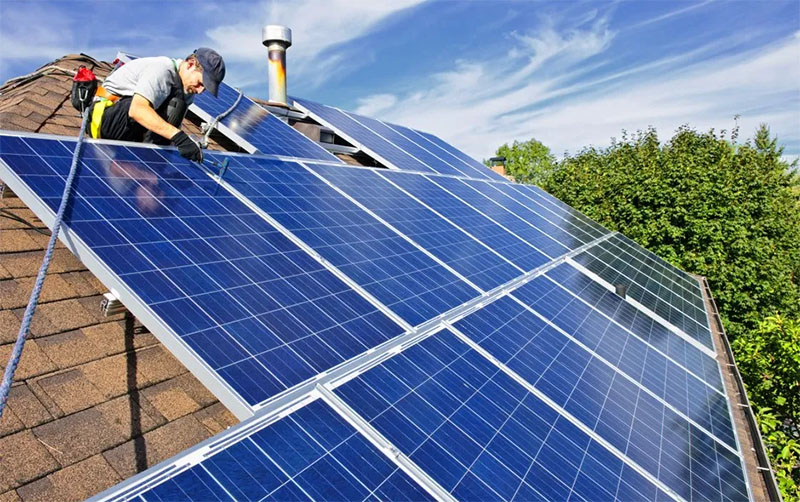
Photo Credit: Getty Images
U.S. energy officials are intensifying scrutiny of Chinese-manufactured components used in renewable energy systems after undisclosed communication devices were found embedded in solar power inverters and batteries. These rogue elements—absent from official product documentation—were discovered during technical assessments of grid-connected equipment, raising fears over potential remote interference and grid destabilization.
Power inverters, predominantly produced in China, play a critical role in linking solar panels, wind turbines, and batteries to the electrical grid. While remote access is standard for maintenance and updates, utility companies usually install firewalls to block unauthorized external communications. However, U.S. experts have found that certain inverters and batteries, particularly those from Chinese manufacturers, contain undocumented cellular radios capable of bypassing these protections.
The implications are severe. Experts warned that these unauthorized communication channels could be exploited to remotely shut down or reconfigure energy systems, potentially triggering widespread blackouts or damaging critical infrastructure. “That effectively means there is a built-in way to physically destroy the grid,” said one expert.
Though the U.S. Department of Energy (DOE) has not officially acknowledged the findings, it stated it is actively assessing risks associated with emerging technologies. The department emphasized the need for transparency and the development of Software Bills of Materials to ensure all product functionalities are disclosed.
As geopolitical tensions with China rise, U.S. lawmakers and agencies are pushing for a shift away from Chinese suppliers in the energy sector. Proposed legislation seeks to ban the Department of Homeland Security from procuring batteries from six Chinese firms by 2027, citing national security concerns. Utilities like Florida Power & Light are already seeking alternatives to Chinese-manufactured inverters.
Globally, concerns are growing as Chinese inverters dominate the market. Huawei, which holds nearly 30% of global inverter shipments, exited the U.S. market in 2019 but remains a major player elsewhere. European developers, such as Germany’s 1Komma5, are opting out of Huawei inverters due to security fears.
Countries like Lithuania and Estonia have enacted or proposed bans on Chinese inverters for installations above 100 kilowatts. In the U.S., a 2024 incident reportedly saw inverters disabled remotely from China, underscoring the vulnerability of decentralized energy infrastructure.
As NATO and other international bodies call for reduced dependency on Chinese technology, the discovery of these hidden components marks a pivotal moment in the reassessment of strategic vulnerabilities in the West’s energy grid.
















